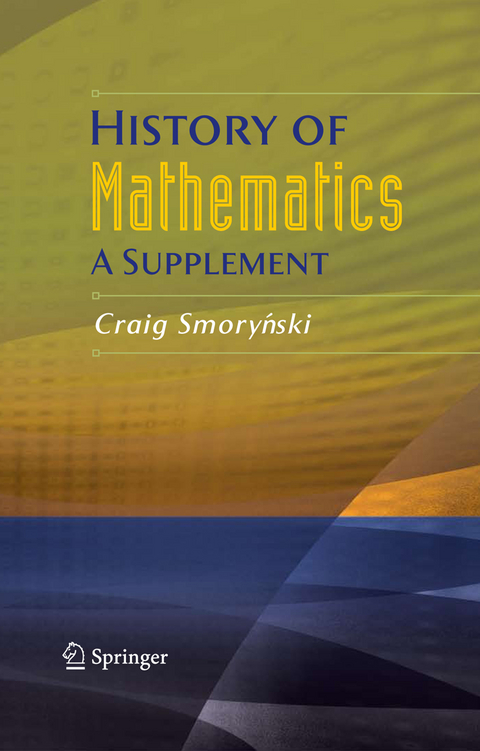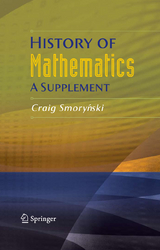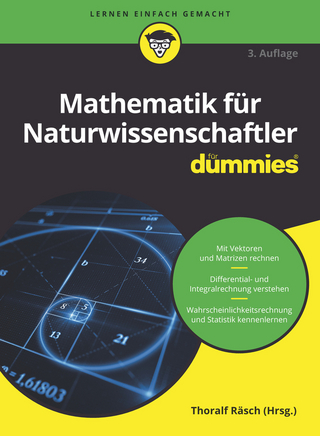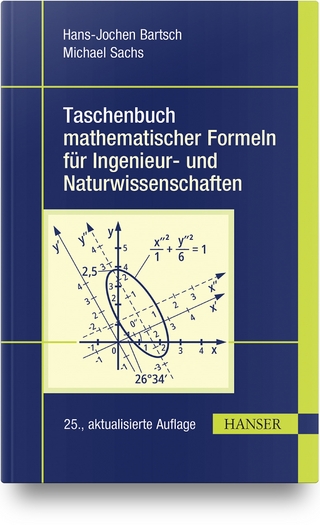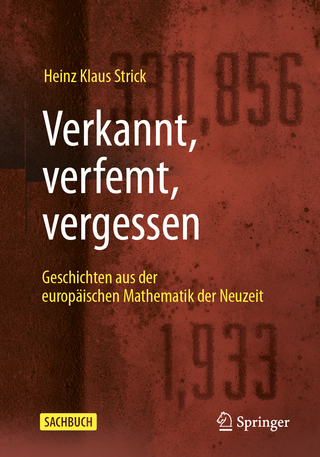History of Mathematics
A Supplement
Seiten
2007
Springer-Verlag New York Inc.
978-0-387-75480-2 (ISBN)
Springer-Verlag New York Inc.
978-0-387-75480-2 (ISBN)
1 An Initial Assignment I haven’t taught the history of mathematics that often, but I do rather like the course. in American colleges at least, the students taking the course are not mathematics majors but e- cation majors— and and in the past I had found education majors to be somewhat weak and unmotivated.
1 An Initial Assignment I haven’t taught the history of mathematics that often, but I do rather like the course. The chief drawbacks to teaching it are that i. it is a lot more work than teaching a regular mathematics course, and ii. in American colleges at least, the students taking the course are not mathematics majors but e- cation majors— and and in the past I had found education majors to be somewhat weak and unmotivated. The last time I taught the course, however, themajorityofthestudentsweregraduateeducationstudentsworkingtoward their master’s degrees. I decided to challenge them right from the start: 1 Assignment. In An Outline of Set Theory, James Henle wrote about mat- matics: Every now and then it must pause to organize and re?ect on what it is and where it comes from. This happened in the sixth century B. C. when Euclid thought he had derived most of the mathematical results known at the time from ?ve postulates. Do a little research to ?nd as many errors as possible in the second sentence and write a short essay on them. Theresponsesfarexceededmyexpectations. Tobesure,someoftheund- graduates found the assignment unclear: I did not say how many errors they 2 were supposed to ?nd. But many of the students put their hearts and souls 1 MyapologiestoProf. Henle,atwhoseexpenseIpreviouslyhadalittlefunonthis matter. I used it again not because of any animosity I hold for him, but because I was familiar with it and, dealing with Euclid, it seemed appropriate for the start of my course.
1 An Initial Assignment I haven’t taught the history of mathematics that often, but I do rather like the course. The chief drawbacks to teaching it are that i. it is a lot more work than teaching a regular mathematics course, and ii. in American colleges at least, the students taking the course are not mathematics majors but e- cation majors— and and in the past I had found education majors to be somewhat weak and unmotivated. The last time I taught the course, however, themajorityofthestudentsweregraduateeducationstudentsworkingtoward their master’s degrees. I decided to challenge them right from the start: 1 Assignment. In An Outline of Set Theory, James Henle wrote about mat- matics: Every now and then it must pause to organize and re?ect on what it is and where it comes from. This happened in the sixth century B. C. when Euclid thought he had derived most of the mathematical results known at the time from ?ve postulates. Do a little research to ?nd as many errors as possible in the second sentence and write a short essay on them. Theresponsesfarexceededmyexpectations. Tobesure,someoftheund- graduates found the assignment unclear: I did not say how many errors they 2 were supposed to ?nd. But many of the students put their hearts and souls 1 MyapologiestoProf. Henle,atwhoseexpenseIpreviouslyhadalittlefunonthis matter. I used it again not because of any animosity I hold for him, but because I was familiar with it and, dealing with Euclid, it seemed appropriate for the start of my course.
Annotated Bibliography.- Foundations of Geometry.- The Construction Problems of Antiquity.- A Chinese Problem.- The Cubic Equation.- Horner's Method.- Some Lighter Material.
| Zusatzinfo | 42 Illustrations, black and white; VI, 274 p. 42 illus. |
|---|---|
| Verlagsort | New York, NY |
| Sprache | englisch |
| Maße | 155 x 235 mm |
| Themenwelt | Mathematik / Informatik ► Mathematik ► Allgemeines / Lexika |
| Mathematik / Informatik ► Mathematik ► Algebra | |
| Mathematik / Informatik ► Mathematik ► Geometrie / Topologie | |
| Mathematik / Informatik ► Mathematik ► Geschichte der Mathematik | |
| ISBN-10 | 0-387-75480-6 / 0387754806 |
| ISBN-13 | 978-0-387-75480-2 / 9780387754802 |
| Zustand | Neuware |
| Informationen gemäß Produktsicherheitsverordnung (GPSR) | |
| Haben Sie eine Frage zum Produkt? |
Mehr entdecken
aus dem Bereich
aus dem Bereich
Buch | Hardcover (2023)
Hanser, Carl (Verlag)
CHF 41,95
Geschichten aus der europäischen Mathematik der Neuzeit
Buch | Softcover (2024)
Springer (Verlag)
CHF 41,95
